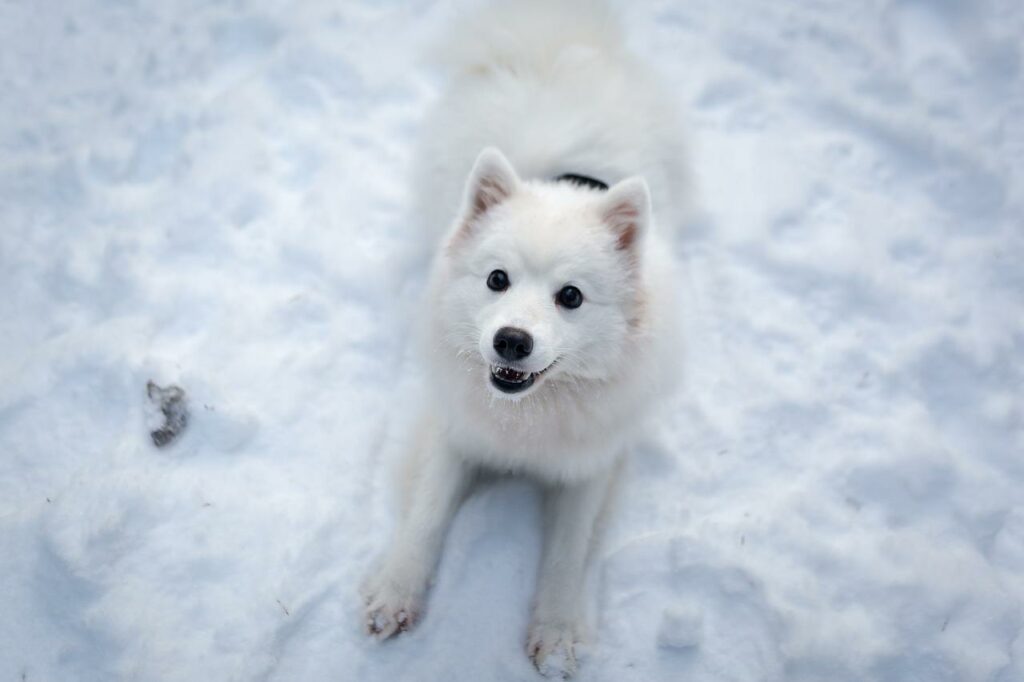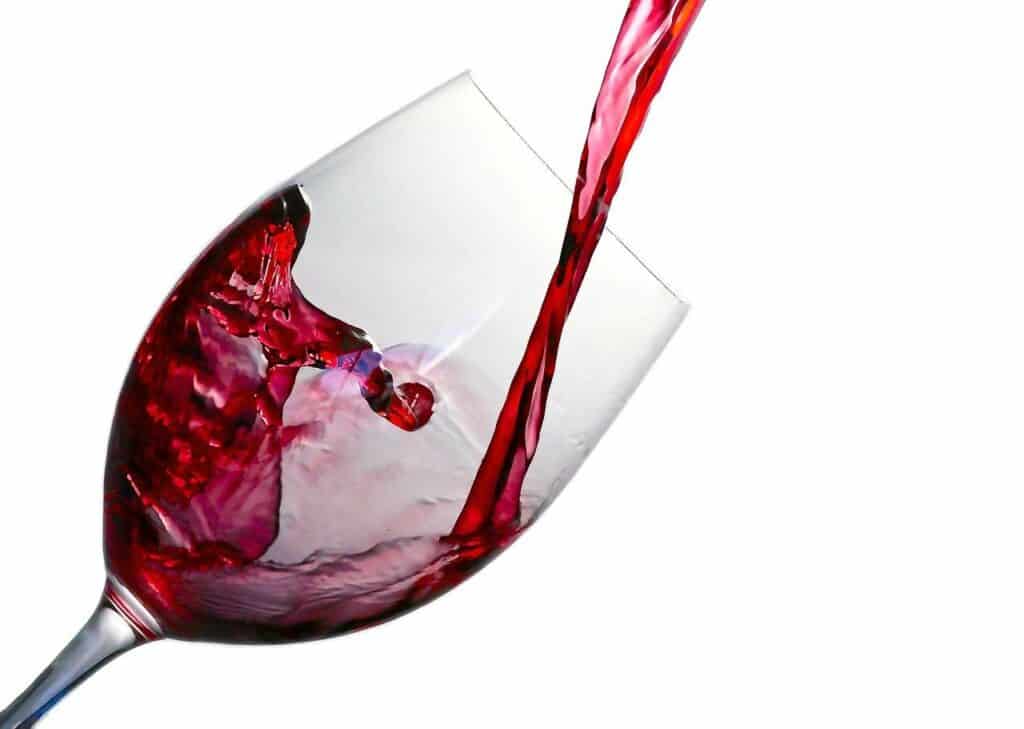Nothing beats the taste of red wine over family dinner; add that with the aroma that hits your nostrils while taking a sip.
That draws your dog closer and will wag and beg for some.
Feeding some red wine to your furry friend is harmless, so you think.
Before you do, let’s answer the question, can dogs drink red wine?
Dogs shouldn’t drink red wine.
It contains toxic ingredients for dogs, and excessive consumption of these contents can be fatal.
Although a dog may handle a sip or two of red wine, this shouldn’t be occasional.
Every dog owner should be cautious of the drinks they feed their dogs.
While they may seem harmless, it’s best to seek veterinary advice.
This article gives you an insight into everything you need to know about feeding dogs red wine.
Read on to discover the effects and what to do if your canine friend sips the drink.

What happens when dogs drink red wine?
The effects of red wine on dogs vary based on their size and the amount of the drink consumed.
Regardless, a dog will exhibit the following symptoms, which include signs of intoxication from sipping red wine:
- Vomiting
- Loss of appetite
- Restlessness
- Excessive drooling
- Lethargy
- Slow breaths
- Diarrhea
- Abdominal pain
If your dog consumes red wine in large quantities, it will have faster and more severe reactions than one who has drunk small amounts.
However, if your dog is a smaller breed, it can show adverse reactions from drinking a few sips that a bigger dog would from consuming a similar amount.

Which ingredients in red wine are toxic to dogs?
Red wine contains ingredients that are toxic for dog consumption.
These are:
Grapes: Red wine contains grapes that are toxic to dogs.
They contain flavonoids, tannins, and monosaccharides that your dog’s system cannot metabolize.
This leads to grape toxicity which is linked to kidney failure in dogs.
Preservatives: Most red wine brands contain preservatives such as sulfur dioxide, which is toxic to dogs.
Sulfur dioxide leads to severe thiamine deficiency, which causes neurological damage to dogs.
Yeast: Red wine contains highly toxic yeast if dogs consume it, especially in large quantities.
Yeast causes bloating because it rises when it gets to your dog’s stomach.
As a result, the dog’s stomach expands, leading to bloating.
Red wine exposes your dog to poisoning from ethanol which forms from the yeast fermentation and absorbs into its bloodstream.
What health effects can red wine cause dogs?
Consumption of red wine in dogs leads to adverse health conditions.
These include:
Damage to the central nervous system: Like humans, red wine impairs a dog’s central nervous system leading to lethargy, muscle tremors, and poor coordination.
The effects are more severe in dogs, even after consuming a small amount of the drink.
Metabolic acidosis: Red wine can induce metabolic acidosis, a life-threatening dog condition.
It leads to a rapid increase in acidity levels which causes hypothermia, low heart rates, heart attacks, low blood pressure, and respiratory depression.
Hypoglycemia: Excessive consumption of red wine causes hypoglycemia.
Hypoglycemia is excessively low blood sugar.
This condition manifests in the form of seizures, weakness, and lethargy.
Gastrointestinal issues: Red wine can lead to gastrointestinal distress in dogs.
It irritates the lining of their gastrointestinal tracts, leading to stomach pain, diarrhea, and vomiting.
What should you do if your dog consumes red wine?
Treat any amount of red wine consumption in dogs as an emergency.
You don’t want the symptoms to be adverse and turn fatal.
- Evaluate how much red wine your dog has consumed.
- Determine how much time has elapsed since the incident.
- Call your veterinarian with the information and follow recommendations. Don’t induce vomiting or try other home remedies to contain the situation unless the vet recommends it.
Your vet may request to see the dog.
If little time has elapsed since the occurrence, the vet may induce vomiting or give your dog activated charcoal to absorb the red wine.
Otherwise, your dog will undergo blood tests, IVs, or dialysis.
Can red wine kill dogs?
After you find out that your dog has drunk red wine, especially in large amounts, seek a vet’s advice immediately.
If your dog contracts poisoning or other health complications, immediate treatment will help restore its health.
Red wine can kill dogs if they drink it in massive amounts.
If your dog contracts poisoning, kidney failure, or grape toxicity without receiving immediate treatment, the symptoms can worsen and cause death.
However, red wine’s toxicity depends on your dog’s size.
Smaller dog breeds are at high risk of dying from consuming small amounts of the drink than bigger ones.
How do you prevent your dog from consuming red wine?
When your dog consumes red wine, you’ll want to take measures to prevent future occurrences of such incidents.
These measures include:
Proper storage: Keep red wine out of your dog’s reach and wipe out any spills from surfaces.
When drinking, don’t leave the bottles and glasses unattended.
Training: Train your dog to obey your commands.
This way, when you say no to certain foods and drinks, it will stop begging for some.
Start training when they’re puppies because once they grow older, it’s harder to have them under control.
Choose healthy drink alternatives: Feed your dog healthy drinks such as water, chicken broth, coconut water, and fruit juices.
They contain essential nutrients and don’t have any toxic ingredients.
Conclusion
While it’s tempting to feed dogs the drinks you enjoy, red wine isn’t one of them.
It contains toxic ingredients and can cause life-threatening health conditions in dogs.
If your dog drinks red wine, seek immediate veterinary treatment to avoid poisoning and toxicity from the components.
Other than the drink, avoid feeding your dog those foods cooked using red wine.
However tasty, the foods contain toxic ingredients similar to those in the wine.
Next time you want to enjoy your red wine, feed your dog healthy drink options that bring nutritional benefits.
- What Dog Breeds Have Pink Skin? - March 24, 2023
- What Are the Most Inspiring Dog Breeding Quotes? - March 20, 2023
- Can Pheromone Spray Help Improve Dog Breeding Results? - March 19, 2023








